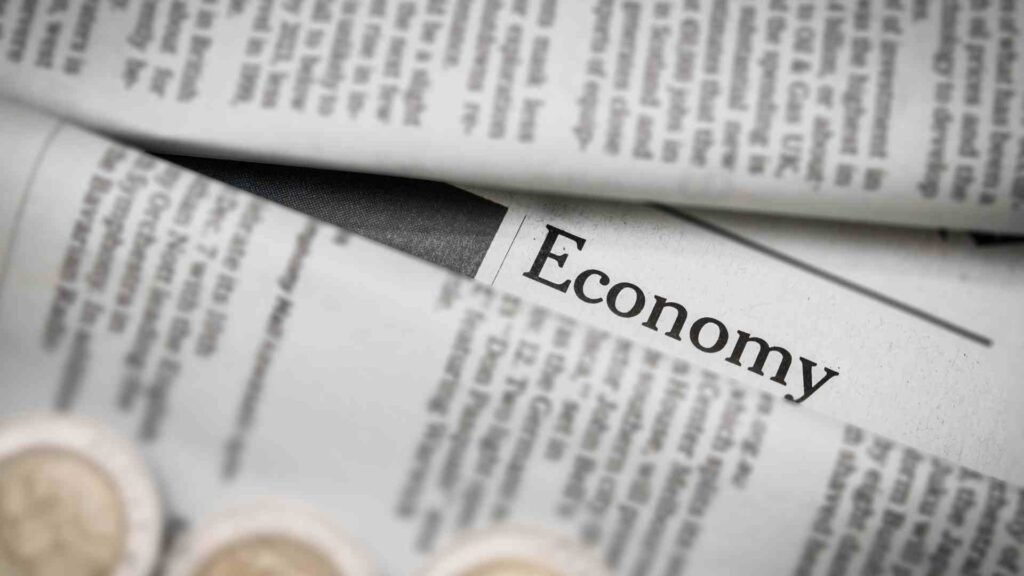China’s management of economic perception is multifaceted. China’s government is adept at using strategic propaganda to shape public perceptions of its economy, particularly during economic challenges. This approach involves a concerted effort by government officials, under the guidance of leaders like President Cai Qi and President Xi Jinping, to highlight the country’s economic prospects and present a positive image of the future.
Strategic Propaganda of China’s Management
Propaganda is crucial in managing how domestic and international audiences perceive China’s economy. This is especially important when the country faces significant economic hurdles. The use of propaganda ensures that the narrative around China’s economic health remains favorable, helping to maintain confidence among citizens and investors alike.
Role of President Cai Qi
President Cai Qi has been instrumental in driving this propaganda effort. He has actively encouraged officials to emphasize China’s economic prospects, pushing for a narrative that focuses on growth and opportunity. By doing so, he aims to bolster public confidence and counteract any negative sentiment that might arise from economic difficulties.
Directives from President Xi Jinping
President Xi Jinping has also called for a more positive image of the economy, urging officials to highlight its “bright” outlook. His directives aim to create a sense of optimism and stability, which is vital for maintaining social harmony and economic momentum. This top-down approach ensures that the message is consistent and pervasive across all levels of government and media.
Challenges Faced by China’s Economy

Despite the positive spin, China’s economy faces several significant challenges that require careful management and strategic planning.
Slow Recovery Post-Pandemic
The aftermath of pandemic-related restrictions has left China’s economy in a slower recovery phase. The lockdowns and stringent measures, while effective in controlling the virus, had a substantial impact on economic activities, leading to slower growth and a need for robust recovery strategies.
According to a report by The Thaiger, China’s economy faces challenges post-pandemic, while the US economy thrives.
Property Sector Issues
One of the most pressing issues is the slowdown in the property sector, coupled with rising debt. The property market, a significant driver of economic growth, has been facing challenges, including a drop in property sales and increasing defaults on loans. Addressing these issues is critical for stabilizing the economy.
Investment banks like JPMorgan, UBS, and Morgan Stanley have scaled back operations in China due to economic challenges, including the property sector.
Youth Unemployment
Youth unemployment has reached record highs, posing a serious challenge to economic stability. With a large portion of the young population unable to find jobs, there is an urgent need for policies that create employment opportunities and support young job seekers.
The government agency reported that the revised unemployment figures now exclude students still in school. After modifying its calculation methods, the bureau announced that the jobless rate among 16- to 24-year-olds was 14.9 percent in December.
Aging Population
China’s rapidly aging population adds another layer of complexity to its economic challenges. The increasing number of elderly citizens requires more resources for healthcare and social support, putting additional strain on the economy. Developing sustainable policies to manage this demographic shift is essential for long-term economic stability.
In 2019, 254 million people in China were aged 60 years or older. By 2040, this number is expected to increase to 402 million, making up around 28% of the population. According to the United Nations Population Division, China’s aging population is expected to reach 365.64 million by 2050, representing 26% of the total population. The oldest-old population (those aged 80 and above) is also growing rapidly.
Trade Tensions
Trade tensions with major partners like the US and the EU have also impacted China’s economic stability. These tensions have led to uncertainties in trade policies, affecting exports and overall economic performance. Navigating these complex trade relationships is crucial for maintaining economic growth.
In May 2024, China’s exports grew faster than expected, rising by 7.6% in U.S. dollar terms. This beat expectations for 6% growth. However, imports during the same period increased by only 1.8%, missing the forecasted 4.2% growth. China’s exports have held up despite trade tensions with the U.S., supporting overall economic growth
Warnings from Top Spy Agency
China’s top spy agency has raised concerns about a “false narrative” that seeks to discredit the country’s economy. This highlights the ongoing battle against misinformation and the need for effective communication strategies to counteract negative perceptions.
The Concept of “Fake China”
The phenomenon of “Fake China” refers to the country’s notorious reputation for counterfeit products, which has had far-reaching implications for its global image.
Scandals in Counterfeit Food
China has faced numerous scandals related to counterfeit food products, which have eroded trust among consumers. These incidents not only harm public health but also damage the country’s reputation for product safety and quality.
Pro-China Propaganda Overseas
To combat these negative perceptions, China has ramped up its pro-China propaganda efforts overseas. These campaigns aim to delegitimize the West and promote a more favorable image of China. By doing so, the government seeks to enhance its soft power and influence on the global stage.
Counterfeit and Pirated Products
China is well-known for leading the world in the production of counterfeit and pirated goods. This issue has significant economic implications, as it affects global trade relationships and intellectual property rights. Addressing the root causes of this problem is essential for improving China’s international standing and economic relations.
China’s management of economic perception is a multifaceted endeavor that involves strategic propaganda, addressing economic challenges, and combating negative narratives. While the country faces significant hurdles, the government’s proactive approach aims to maintain confidence and stability. By focusing on positive messaging and addressing key issues head-on, China seeks to navigate its economic challenges and present a brighter future.
